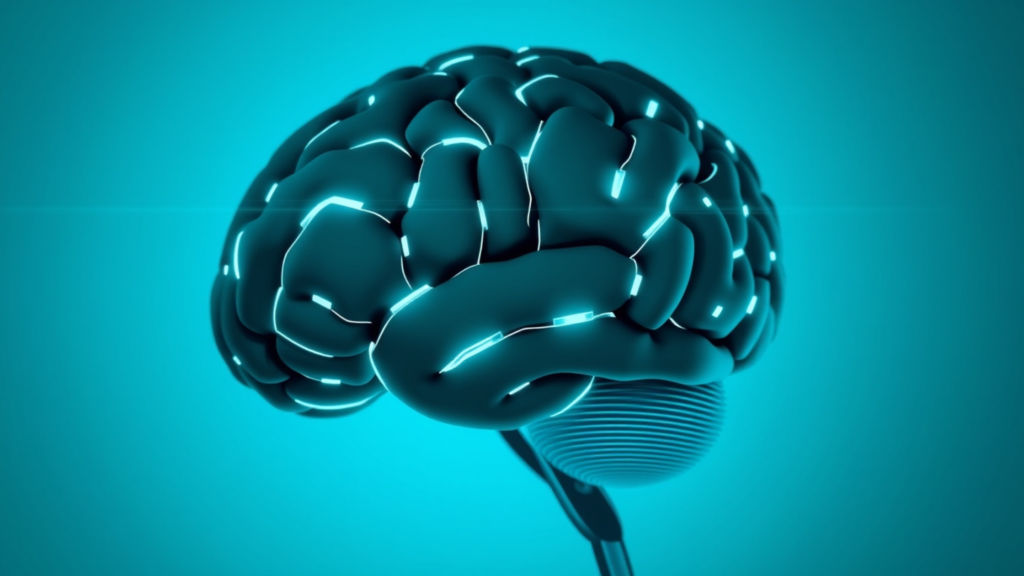How Big Data Impacting Search Engine Optimization ( 2025 )

As the digital marketing world evolves rapidly, the interplay between Big Data and Search Engine Optimization (SEO) has grown significantly. Entering the year 2025, it is clear that this synergy is not merely beneficial but essential for marketers, SEO experts, and business executives aiming to keep a competitive edge.
This article delves deeply into how is big data impacting search engine Optimization and technologies have become fundamental in devising effective SEO strategies, shaping the future of digital marketing with precision and insight.
Understanding Big Data’s Role in SEO Evolution

The Technological Advancements from 2020 to 2025
From 2020 to 2025, SEO practices have undergone transformative changes, driven by technological progress:
- AI and Machine Learning: Google’s BERT and MUM algorithms have revolutionized the SEO landscape by utilizing deep learning to interpret the context and intent behind user searches more effectively. This technological leap requires that content must not only be rich with relevant keywords but also finely tuned to match the searcher’s underlying motivations.
- Mobile and User Experience Optimization: As mobile usage has skyrocketed, search engines have increasingly favored websites that provide quick, secure, and mobile-friendly user experiences. This shift underscores the importance of mastering technical SEO elements like loading speed, responsive design, and secure connections.
- Entity-Based and Semantic Search: The focus of search technology has broadened from simple keywords to understanding and indexing entities—people, places, and items. This evolution necessitates a nuanced SEO approach that goes beyond keyword density to embrace entity recognition and semantic search techniques.
Rising Trends in Search: Voice and Visual Queries
- Voice Search Optimization: The proliferation of voice-activated devices has made optimizing for voice search a critical task. This involves adapting SEO strategies to accommodate the conversational nature of voice queries, requiring a deeper understanding of natural language processing.
- Visual Search Optimization: The growth of image-centric platforms like Pinterest and Instagram underscores the need to optimize visual content for better search visibility. Effective visual SEO now involves meticulous tagging, using high-quality images, and aligning visual elements closely with textual content to enhance relevance and discoverability.
Big Data Technologies in 2025

Integration of AI and Machine Learning
AI and machine learning have moved beyond being just innovative buzzwords to being integral tools in Big Data, automating intricate processes and identifying patterns in massive datasets that would elude human analysis. For SEO, this translates into more refined keyword research capabilities, enhanced predictive analytics, and tailored content recommendations designed to engage specific audiences effectively.
The Emergence of Quantum Computing
Quantum computing promises to revolutionize data processing with its ability to handle information at unprecedented speeds. For SEO, the implications are profound, offering the potential for faster and more accurate data analysis, which could reshape everything from keyword optimization to content personalization.
Edge Computing: Data Processing Closer to Source
Edge computing brings data processing closer to the data source, significantly reducing latency and enhancing real-time data analysis capabilities. For SEO, this means quicker and more efficient website optimizations, particularly for mobile users, enhancing overall user experience and satisfaction.
Data-as-a-Service (DaaS) and BDaaS
Data-as-a-Service (DaaS) and Big Data as a Service (BDaaS) provide scalable, cost-effective data management solutions that allow companies to leverage Big Data insights without the need for heavy infrastructure investment. These platforms are crucial for developing flexible, robust SEO strategies that can scale with evolving market demands.
Practical Impacts of Big Data on SEO Practices

Advanced Keyword Research Techniques
With access to expansive Big Data resources, SEO professionals can now conduct far more detailed analyses of search patterns and trends. This access allows for the identification of niche keywords and the optimization of content strategies to target specific market segments more effectively.
Data-Driven Content Personalization
Big Data analytics enable a deeper understanding of user demographics, behavior, and preferences, which empowers businesses to craft highly personalized content. This tailored content not only better satisfies user needs but also significantly boosts engagement rates and SEO performance.
Leveraging Big Data for Competitive Analysis
Big Data tools facilitate a comprehensive understanding of the competitive landscape, enabling marketers to craft superior strategies by analyzing competitors’ keyword usage and backlink profiles in depth. This insight helps identify strategic opportunities and refine SEO tactics for better performance.
Link-Building in the Age of Data
In the modern SEO era, link-building strategies are increasingly informed by data-driven insights. Big Data analytics aids in identifying high-quality backlink opportunities and monitoring the efficacy of link-building efforts, ensuring that these strategies contribute positively to overall SEO goals.
Future Directions and Predictions for Big Data in SEO

Predictive Analytics and User Intent
As predictive analytics become more refined, SEO strategies will increasingly leverage Big Data to anticipate user needs and adapt content proactively. This anticipatory approach ensures that SEO efforts align more closely with future user behaviors and search trends, maintaining relevance and effectiveness.
Real-Time Data and SEO Optimization
The capacity for real-time data processing will equip SEO professionals with the tools to dynamically adjust their strategies, responding promptly to changes in user behavior and market conditions. This agility will enhance the effectiveness of SEO campaigns and improve user engagement across digital platforms.
Ethical Considerations and Data Privacy
As concerns over data privacy grow, maintaining an ethical approach to data usage becomes imperative. SEO strategies must evolve to balance robust data utilization with strict adherence to privacy laws, ensuring that user trust is not compromised while striving for optimization and relevance.
Conclusion
By 2025, Big Data has undeniably reshaped the SEO landscape, offering unprecedented opportunities for optimization and user engagement. Embracing these advanced technologies allows SEO professionals to enhance their strategies, offer more personalized user experiences, and maintain a competitive edge in the dynamic world of digital marketing. Looking forward, the integration of Big Data and SEO is set to deepen, becoming indispensable to successful digital marketing strategies.
FAQs on The Impact of Big Data on SEO in 2025
1. What is Big Data’s role in SEO in 2025?
Big Data plays a critical role in shaping SEO strategies by enabling the analysis of large sets of data to uncover patterns, trends, and insights that inform better decision-making. In 2025, Big Data helps refine keyword research, enhance content personalization, and optimize user experiences, ultimately improving search engine rankings and website visibility.
2. How does AI and machine learning impact SEO in 2025?
AI and machine learning have transformed SEO by automating complex processes and enhancing the ability to analyze data. These technologies enable more accurate keyword research, predictive analytics for anticipating future trends, and personalized content recommendations that resonate with specific audiences, thus improving the effectiveness of SEO strategies.
3. What are the key technological advancements that have shaped SEO from 2020 to 2025?
Key advancements include the integration of AI and machine learning, improved data processing capabilities through quantum and edge computing, and the shift towards mobile and user experience optimizations. These technologies have made SEO more dynamic and responsive to user behaviors and preferences.
4. How has the user experience optimization changed in 2025 due to Big Data?
In 2025, Big Data has enhanced user experience optimization by providing insights into user behavior, preferences, and engagement metrics. These insights help improve website design, content delivery, and functionality, making websites faster, more intuitive, and user-friendly, which are key factors in SEO rankings.
5. What is the significance of entity-based and semantic search in SEO?
Entity-based and semantic search represent a shift from keyword-focused SEO to understanding the context and relationships between entities like people, places, and things. This approach helps search engines deliver more relevant and accurate results, requiring SEO strategies to optimize content that is contextually rich and well-connected semantically.
6. How do voice and visual searches influence SEO strategies in 2025?
With the increasing use of voice-activated devices and visual search technologies, SEO strategies in 2025 must accommodate natural language queries and optimize visual content. This includes structuring content to answer direct questions for voice searches and using high-quality, well-tagged images to improve visibility in visual searches.
7. What are the benefits of Data-as-a-Service (DaaS) and Big Data as a Service (BDaaS) for SEO?
DaaS and BDaaS offer scalable, cost-effective solutions for managing large volumes of data, allowing businesses to leverage Big Data insights without significant infrastructure investments. These services enhance SEO by providing real-time data analytics and insights that help optimize content and strategies based on actual user behavior and market trends.
8. How can businesses leverage Big Data for competitive SEO analysis in 2025?
Big Data enables businesses to conduct in-depth competitive analysis by providing insights into competitors’ SEO strategies, such as keyword usage, backlink profiles, and content marketing tactics. This information helps businesses identify gaps in their own strategies and opportunities for differentiation, thus gaining a competitive edge.
9. What future trends are predicted for Big Data and SEO beyond 2025?
Beyond 2025, trends in Big Data and SEO are expected to focus on advanced personalization, predictive analytics for search intent, real-time data processing, and ethical data practices. These trends will likely drive further innovations in SEO, enhancing the ability to meet user expectations and comply with data privacy regulations.
10. How do ethical considerations and data privacy impact SEO practices?
Ethical considerations and data privacy play a significant role in shaping SEO practices by ensuring that data is used responsibly. Adhering to privacy laws and ethical guidelines helps maintain user trust and compliance with regulations, which are crucial for sustaining a positive brand reputation and effective SEO results.
How is Big Data impacting Search Engine Optimization in 2025?
In 2025, Big Data significantly impacts SEO by enabling deeper insights into user behavior and preferences. This allows for more precise keyword targeting, content personalization, and overall strategy optimization, resulting in improved search engine rankings and more effective digital marketing campaigns.